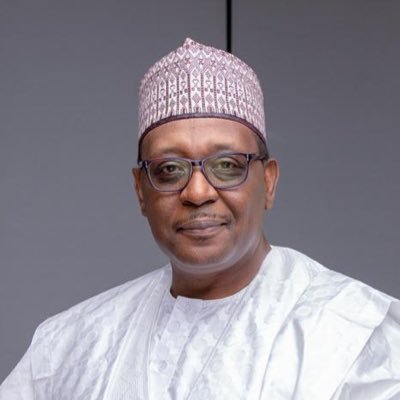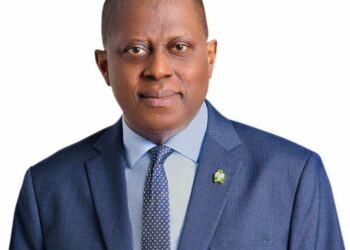Nigeria’s chronic loss of up to $2 billion (N3.2trillion) a year to outbound medical travel has prompted policymakers, clinicians and private investors to chart a rescue blueprint aimed at keeping patients and much‑needed foreign exchange at home. The effort, unveiled at a series of meetings in Abuja and Lagos, is built around three pillars: public‑private partnerships to upgrade specialist care, large‑scale engagement of diaspora doctors through telemedicine and short‑term missions, and tougher enforcement of health‑insurance and workforce‑retention policies.
Deputy speaker of the House of Representatives Benjamin Kalu, set the tone recently when he described the capital flight as “an assault on our health sovereignty” during talks with Dr. Philip Ozuah, president of the US‑based Montefiore Medicine System.
Kalu said a new Medical Research and Training Centre will be established in partnership with international institutions to tackle cancer, renal disease, diabetes and infectious conditions, ailments that drive many Nigerians to hospitals in India, the United Kingdom and the United States.
Health Minister Professor Ali Pate, echoed the concern, noting that outward medical travel drains about $2 billion (N3.2trillion) each year. “Revamping tertiary centres such as the recently commissioned Avon Medical Centre and replicating them nationwide is essential if we expect citizens to trust local facilities,” he said.
Professional bodies see collaboration with the private sector as the quickest route to world‑class services. Nigerian Medical Association (NMA) president Professor Bala Audu told delegates at the NMA Healthcare & Medical Expo recently that government alone cannot finance the upgrade. “Nigeria exports more health professionals and patients than any other African country,” he said. “Pooling public funds with private equity is the only realistic way to reverse both trends.”
Prof. Bala Audu, said worldwide, the healthcare industry is worth over $12 trillion, expanding to $18 trillion by 2028, with Nigeria having a measly $6 billion of this share, adding that, ironically, the country is a leading exporter of health professionals globally.
“The global market for medical tourism exceeds $100 billion and it is expected to reach $180 billion by 2030, with Nigeria contributing to this as an exporter of patients with an annual flight of capital of over $2 billion (equivalent to N3.2 trillion, using the dollar to naira rate of N1,600/$1) to medical tourism,” Audu lamented, while affirming that, “This is predicted to get worse, unless we intervene as a nation.
“Part of our recommendations is the need for government to review the remuneration of health workers, put in place workplace security, as well as equipment that will enable doctors function most effectively. The current challenges we are having is because those who have decided to remain behind are trying their best to ensure that they deliver the same quality of healthcare that was being provided even before those who have left this country, therefore, there’s a lot of burnout; there’s a lot of excess workload, and that is why we are going to have, for a while, over-congestion in our hospitals because there are a limited number of health professionals to provide these services. We hope, if we are able to reverse the brain drain into a brain gain, that this trend will be solved,” he stated.
On reversing medical tourism in Nigeria, Audu said, “Nigeria has great hospitals especially in the private health sector. “We want to show Nigerians that are leaving the country to seek medical care abroad, that what they are seeking abroad are actually available within the country amongst many of the best, both public and private health sectors. They are available, and we urge Nigerians, both individual citizens as well as those who have been sponsored by government, that instead of going outside Nigeria seeking for medical healthcare delivery, that we have many well-established, highly-specialised, well-equipped hospitals in this country that can actually handle their health needs,” he stated.
On suggestions to retain doctors in Nigeria, the NMA president urged government to implement the existing policies, adding that, “There are already existing policies that need to be implemented. For instance, the National Policy on Health Workforce Retention. It has a number of components in it, which includes the improvement of the welfare and well-being of healthcare professionals, from doctors, nurses, laboratory scientists, and all key players within the health sector. The singular implementation of this policy is enough to retain healthcare professionals and improve the retention rates of our hospitals, of these healthcare professionals, so that they can be more dedicated and rededicated to providing the required healthcare services to our citizens. Another thing is to ensure that equipment and tools needed for the diagnosis and the treatment of patients are available within these healthcare facilities. Government should also think of reducing out-of-pocket medical expenses.”
A medical doctor in Alimosho Local Government Area in Lagos, Dr. Gbenro Omotehinse, told NATIONAL ECONOMY that it would require a lot of energy and resources to disabuse the growing number of medical tourists of the notion that they can receive topnotch healthcare as in other climes such as India.
First NMA vice‑president Dr. Benjamin Olowojebutu, argued that showcasing domestic success stories is equally important. “One Lagos hospital now performs sixteen kidney transplants a month; another completes complex heart surgeries in hours,” he said. “Patients need to know they have quality options at home.”
One flagship example is the African Medical Centre of Excellence in Abuja, funded by Afreximbank with King’s College Hospital London and the Christie NHS as clinical partners. When fully opened, the hospital will house advanced oncology, cardiology and diagnostic departments—care categories at the heart of Nigeria’s medical‑tourism outflow.
In addition to bricks‑and‑mortar projects, Kalu and Pate are lobbying diaspora physicians to provide remote consultations and periodic in‑country training. “Brain drain can be turned into brain gain if we harness telehealth, artificial‑intelligence diagnostics and visiting‑consultant programmes,” Kalu said.
On the financing side, the National Assembly is tightening compliance with mandatory health‑insurance enrolment while expanding primary‑care funding. Laws to streamline health‑sector import duties and offer tax relief for specialist hospitals are also under review.
Retaining up to $2 billion (N3.2trillion)annually within Nigeria could significantly reduce foreign exchange demands while funding healthcare infrastructure and job creation. The World Health Organization (WHO) estimates that every $1 invested in health generates $4 in social and economic returns. The organization said aligning investments with policy reforms promises to restore confidence among citizens and investors alike.
Infrastructure gaps remain daunting. Lagos Health Commissioner Professor Akin Abayomi, disclosed that the state has just under 39,000 hospital beds, leaving a shortfall of more than 66,000. “Lagos State has a total of 34,995 hospital beds in the private sector and 3,717 in the public sector; this amounts to a total of 38,712 hospital beds. As such, the state has a hospital bed deficit of about 66,288 beds,” Abayomi stated. To bridge the gap, Lagos is proposing benchmark public facilities that private investors would replicate under ministry supervision.
Duchess International Hospital CEO, Adetokunbo Shitta‑Bey, said competitive pricing is part of the equation. “Our goal is to offer world‑class care Africans can afford,” he told reporters at the hospital’s second‑anniversary briefing. “If we match quality and lower total travel costs, the incentive to go abroad disappears.”
It is noteworthy that as of 2024, for general practitioners and paediatricians, the consultation fees in India ranged from 500 to 600 rupees, which is approximately N8,840.25 to N10,608.30. For specialist doctors (e.g., Haematologists, Oncologists, Orthopedists), the fees for consultations ranged from 700 to 2000 rupees, equivalent to N12,376.35 to N35,360.99.
For private hospitals in Nigeria, the consultation fees ranged from N10,000 to N20,000. For specialists, the consultation fees ranged from N30,000 to N60,000.
For teaching hospitals in Nigeria, the consultation fees range from N800 to N3,000 depending on the location and specialty.





